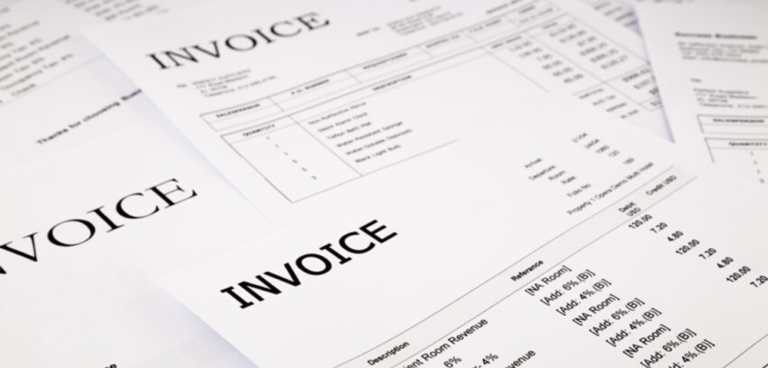Chasing invoices can be a tricky task, leaving tradespeople unsure of the best way to approach it without risking customer relations.
In order to help businesspeople protect their work and finances as much as possible, the insurance experts at Toolbox by Admiral have revealed six of the easiest ways to both prevent and chase unpaid invoices.
Many tradespeople are self-employed or run their own business, meaning that they’re responsible for sorting out the finances. Whether tradespeople have an accountant or not, making sure all of their customers pay on time is a task they’ll have to undertake to maintain a healthy cash flow. Chasing invoices can be a tricky task.
In fact, a recent study has shown that businesses across the UK are chasing a total £50bn in late payments from customers, with an average of 5 outstanding invoices per business*.
A spokesperson from Toolbox says: “Ensuring that you’re getting paid correctly and on time is one of the most important parts of running a business.
“Many businesses and tradespeople will question the right way to go about chasing payments, especially without wanting to tarnish relationships with their customers.
“There are many things you can do to both prevent and chase unpaid invoices, with one of the most important things being that your T&Cs lay out your payment terms, including late payment terms, so that you can refer back to these if any issues arise.”
Toolbox by Admiral has highlighted six easy ways to prevent and chase any unpaid invoices that you and your business are tackling:
- Double-check the T&Cs in your contract
Getting the right terms in your contract, and getting it signed before you start work, can be key to a healthy cash flow. You’ll need to let your customer know how much they need to pay and when, as formally agreeing to this in writing should make them more likely to meet the deadline.
The terms and conditions of your contract need to state the final and total cost of any work completed, an exact description of the work being carried out, who is responsible for sourcing materials, any payment terms and the responsibilities of each and every party involved.
- Have you credit checked customers?
You should set aside time to check your clients before working with them, even if they’re a large company. The more background knowledge that you can gain, the better informed or reassured you can feel.
Similarly, if you find they have a poor payment history, you can decide whether to shorten their payment deadline and put conditions in place, or consider whether you want to work with them in the first place.
- Send invoices with plenty of time to spare
Make sure your invoices are sent out in plenty of time, as this should increase the chances of your client paying within the correct time frame. You could also set up a payment reminder email to be sent a few days before the due date.
Doing this will also allow you to keep in touch with your client throughout the project, meaning that you should be aware if there are any payment issues niggling in the background.
- Offer discounts for early payments
If this is a viable option for you or the business you run, you could think about offering a discount for customers who pay the invoice early. It could only be a small percentage, but a discounted price could encourage your customer to get the payment to you as soon as possible.
You could consider offering these discounts to a small group of customers to start as a trial run.
- Send notices for overdue invoices
If the due date for payment has passed, you should send your customer an overdue notice. This is pretty much the original invoice but stating that the payment is now overdue.
It should remind your customer that they’ll need to pay as soon as possible in order to stick to the contract they’ve signed.
- Continue providing clear communication
Having good relationships with your customers is likely a priority for your business. So, if you’re facing a tricky situation with payment, keep operating in the way you would normally and be clear with the customer about your requirements.
That being said, don’t begin any new work with that client before they’ve paid any remaining fees.

